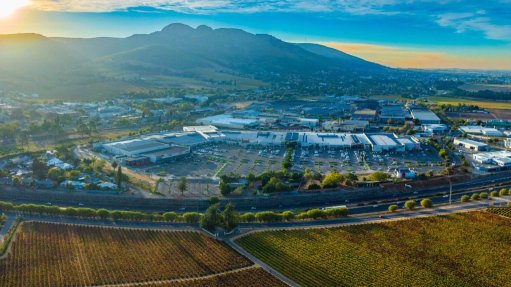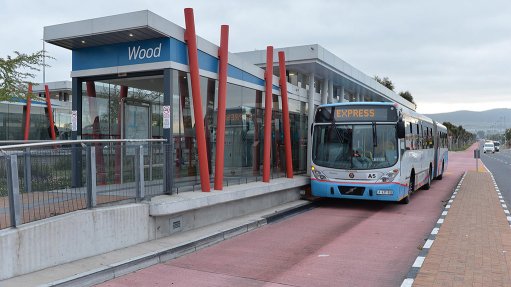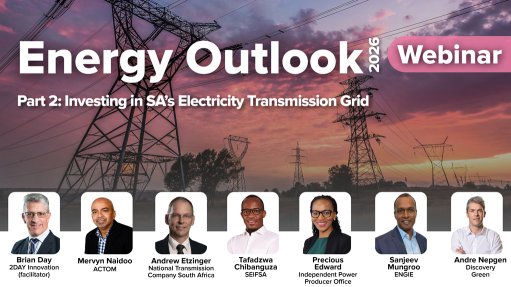Sanitation solutions key to addressing water scarcity
With increasing demands on South Africa’s water infrastructure and the looming threat of water scarcity, advanced sanitation solutions are becoming critical to addressing the nation’s water quality and sustainability challenges, says portable sanitation company Sanitech MD Robert Erasmus.
He notes that water quality is intrinsically tied to levels of contamination, and reports of rivers being contaminated across South Africa underscore the need for more stringent control over sanitation to protect water resources.
According to Erasmus, “if we don’t get the contamination–sanitation element under control, it’s ultimately harder for the water processing component to be held at a high standard”.
This, he says, points to the crucial role of sanitation solutions, particularly in rural and industrial areas, in reducing water contamination and maintaining water quality.
By prioritising sanitation, both public and private infrastructure can ensure cleaner water, which is far more manageable and cost-effective, from a water treatment perspective, especially when trying to return water resources to a potable state.
He adds that regulatory inefficiencies are also continuing to hamper the development of sustainable water infrastructure in South Africa, as approval processes are often long and arduous, delaying essential projects.
Streamlining these processes is necessary to help companies meet their environmental, social and governance (ESG) objectives and contribute to sustainable water management.
Public–private partnerships, meanwhile, also play a pivotal role in advancing water infrastructure development in South Africa.
However, Erasmus points out that one of the most significant challenges in managing waste effectively is the surge in new developments across residential, commercial and industrial areas.
“The infrastructure is degrading and cannot accommodate the rising demands in capacity,” he explains, noting that South Africa’s ageing water infrastructure cannot keep up with the rapid pace of urbanisation.
The solution, according to Erasmus, is decentralisation.
He tells Engineering News that efforts should be centred around areas becoming more self-sufficient by decentralising water and waste infrastructure.
This approach would enable the creation of smaller, localised systems that can ease the pressure on existing infrastructure and enhance efficiency.
Scaling Decentralised Systems
While the scalability of individual decentralised sanitation systems may not always be feasible, multiplying such systems across different regions offers a promising solution.
“The key issue here is not necessarily whether decentralised solutions themselves are scalable, but rather the concept of having numerous decentralised solutions in place,” says Erasmus. By implementing smaller, localised systems, water resource management can be improved, supporting infrastructure development across diverse regions.
Erasmus believes that decentralisation will shape the future of water management in South Africa, noting that decentralised systems, particularly those integrated with real-time monitoring technology, offer increased flexibility and enable early detection of issues, allowing for more effective management.
Collaboration between government, companies such as Sanitech and local authorities will therefore be crucial in ensuring these systems are successfully implemented.
By empowering communities to manage their water resources, South Africa can pave the way for a more sustainable and resilient water future, Erasmus comments.
Technological Innovations
As a water-scarce country, it is especially galling that a significant amount of water is lost along the value chain.
Erasmus estimates that resolving inefficiencies in the chain could boost the country’s water supply by up to 20%.
He notes that, since water is affordable, many companies do not prioritise water-saving initiatives. However, the rise of ESG is pushing businesses to reduce consumption.
Further, technologies that recycle water within industrial systems are becoming increasingly important. He believes that reusing process water will be key to reducing water waste.
Businesses will also have to adopt backup solutions to store treated water effectively.
Consequently, technologies such as water-efficient sanitation systems and advanced filtration methods will be key to revolutionising water conservation efforts, he concludes.
Article Enquiry
Email Article
Save Article
Feedback
To advertise email advertising@creamermedia.co.za or click here
Comments
Announcements
What's On
Subscribe to improve your user experience...
Option 1 (equivalent of R125 a month):
Receive a weekly copy of Creamer Media's Engineering News & Mining Weekly magazine
(print copy for those in South Africa and e-magazine for those outside of South Africa)
Receive daily email newsletters
Access to full search results
Access archive of magazine back copies
Access to Projects in Progress
Access to ONE Research Report of your choice in PDF format
Option 2 (equivalent of R375 a month):
All benefits from Option 1
PLUS
Access to Creamer Media's Research Channel Africa for ALL Research Reports, in PDF format, on various industrial and mining sectors
including Electricity; Water; Energy Transition; Hydrogen; Roads, Rail and Ports; Coal; Gold; Platinum; Battery Metals; etc.
Already a subscriber?
Forgotten your password?
Receive weekly copy of Creamer Media's Engineering News & Mining Weekly magazine (print copy for those in South Africa and e-magazine for those outside of South Africa)
➕
Recieve daily email newsletters
➕
Access to full search results
➕
Access archive of magazine back copies
➕
Access to Projects in Progress
➕
Access to ONE Research Report of your choice in PDF format
RESEARCH CHANNEL AFRICA
R4500 (equivalent of R375 a month)
SUBSCRIBEAll benefits from Option 1
➕
Access to Creamer Media's Research Channel Africa for ALL Research Reports on various industrial and mining sectors, in PDF format, including on:
Electricity
➕
Water
➕
Energy Transition
➕
Hydrogen
➕
Roads, Rail and Ports
➕
Coal
➕
Gold
➕
Platinum
➕
Battery Metals
➕
etc.
Receive all benefits from Option 1 or Option 2 delivered to numerous people at your company
➕
Multiple User names and Passwords for simultaneous log-ins
➕
Intranet integration access to all in your organisation





















